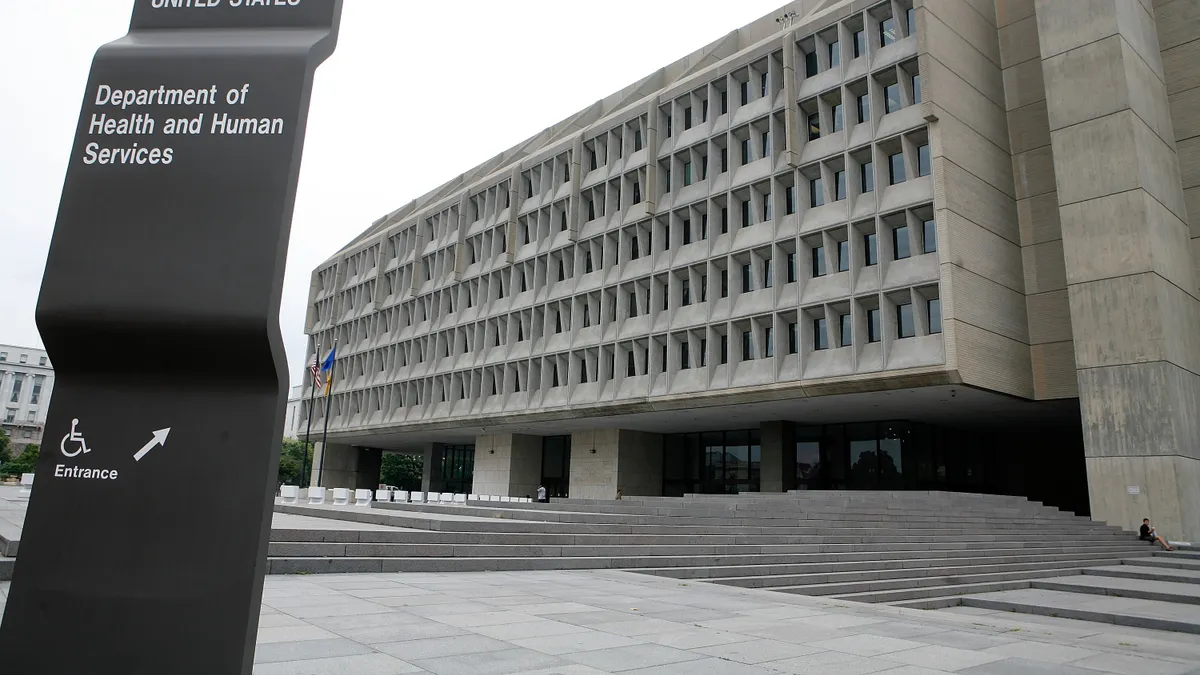Dive Brief:
- The COVID-19 pandemic has left many of the nation's hospitals beleaguered and unable to juggle the needs of patients suffering from the coronavirus versus those with other healthcare issues, according to a report issued Wednesday by the HHS Office of the Inspector General.
- OIG staffers polled administrators from 320 hospitals in 45 states, the District of Columbia and Puerto Rico. Many hospitals reported that their staff members are exhausted due to the pandemic and are experiencing mental health issues. Management is not only coping with that, but also the fact that many staffers and members of the communities are hesitant to take the COVID-19 vaccine. Managers are also concerned that the pandemic has widened gaps in access to care.
- The report recommended that policies be adopted to reduce disparities in healthcare services — an issue that has become a significant safety concern — strengthen the healthcare workforce and provide enough resiliency to better respond to the next pandemic.
Dive Insight:
Aside from the families and friends of those who have died as a result of COVID-19, few other parts of the nation have been hit as hard as hospitals. Their financial hardships became almost immediately apparent, as most were forced to cancel lucrative elective procedures for weeks on end. Above all else, front-line workers have shouldered an enormous mental and physical toll.
Expenses also increased, as prices for personal protective equipment soared and new costs for data reporting were introduced. Some administrators reported to OIG they didn't think Medicare reimbursement was enough for their COVID-19 patients — one hospital estimated it lost $3,000 for each Medicare patient with the diagnosis. COVID-19 patients typically require additional staff, resources and stay in intensive care units for long durations.
To help hospitals weather the crisis financially, the Coronavirus Aid, Relief, and Economic Security Act and the recent COVID-19 relief bill have provided billions of dollars of financial assistance, and the American Hospital Association is strongly lobbying to extend the pause on Medicare sequestration. The OIG report suggests the entire sector is still reeling from the pandemic and is not sure of how to proceed toward the future.
Hospital executives said they were worried about their workers experiencing trauma and of a shrinking recruitment pool for nurses that could exacerbate staffing shortages.
It noted that not only are hospital staffs exhausted by the pandemic, it has also caused numerous ancillary challenges. They include patients whose medical conditions have worsened due to putting off care during the crisis and patients whose mental and behavioral health has declined due to the isolation caused by social distancing and the economic fallout from the loss of jobs and income.
Administrators are also concerned that COVID-19 and its variants will not entirely dissipate, and that it will become a seasonal illness such as the flu. "We are going to have to learn to live with COVID," one administrator told the OIG.
Looking toward the future, hospital administrators expect telehealth to be a larger part of the way they deliver care, although they were concerned that it could not be delivered equally to lower-income patients without broadband access. They are also encouraging employees to participate in new or existing in-house assistance programs, and recruiting more staff from overseas, or domestic hires with less experience.
"The hospitals' front-line perspectives provide an important voice, among many, for HHS to consider as it leads and engages in national dialogues and policymaking to help solve these foundational challenges," the report noted.














